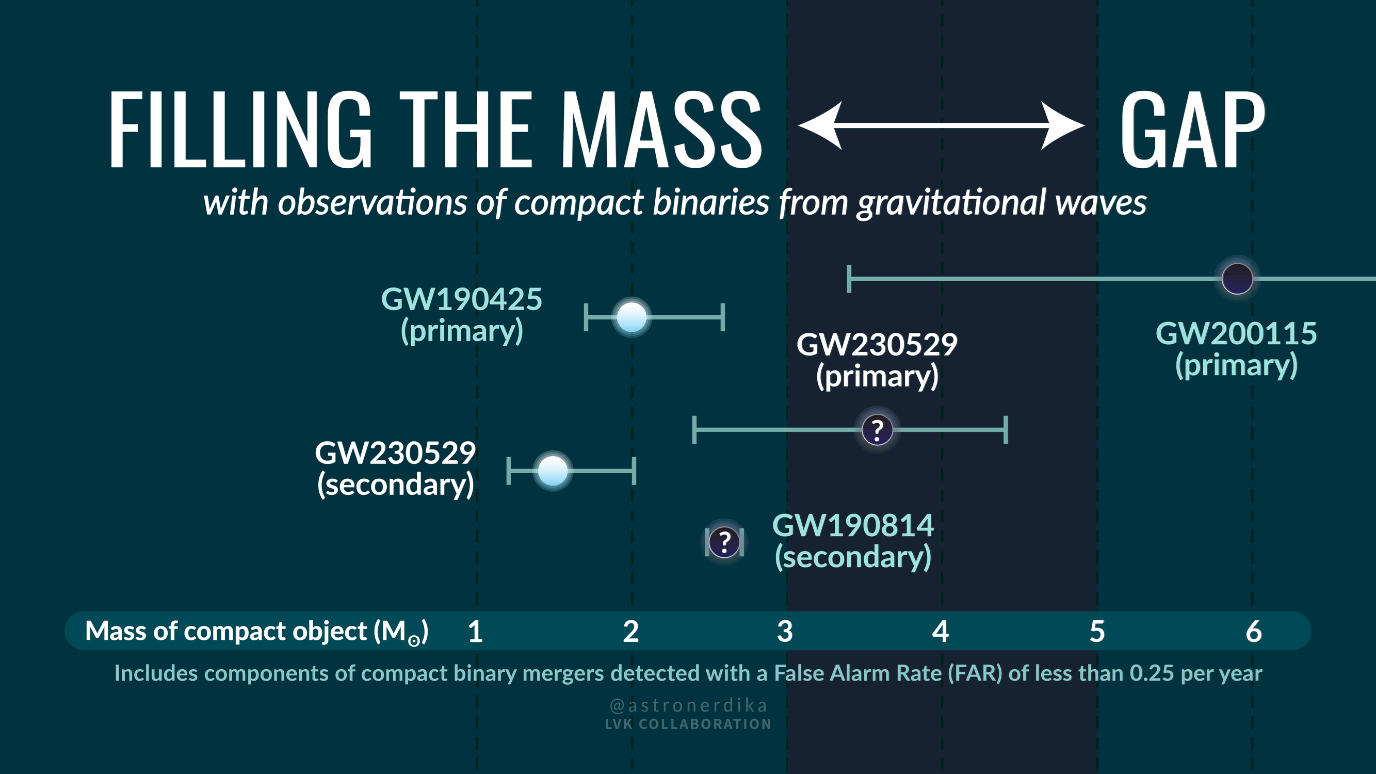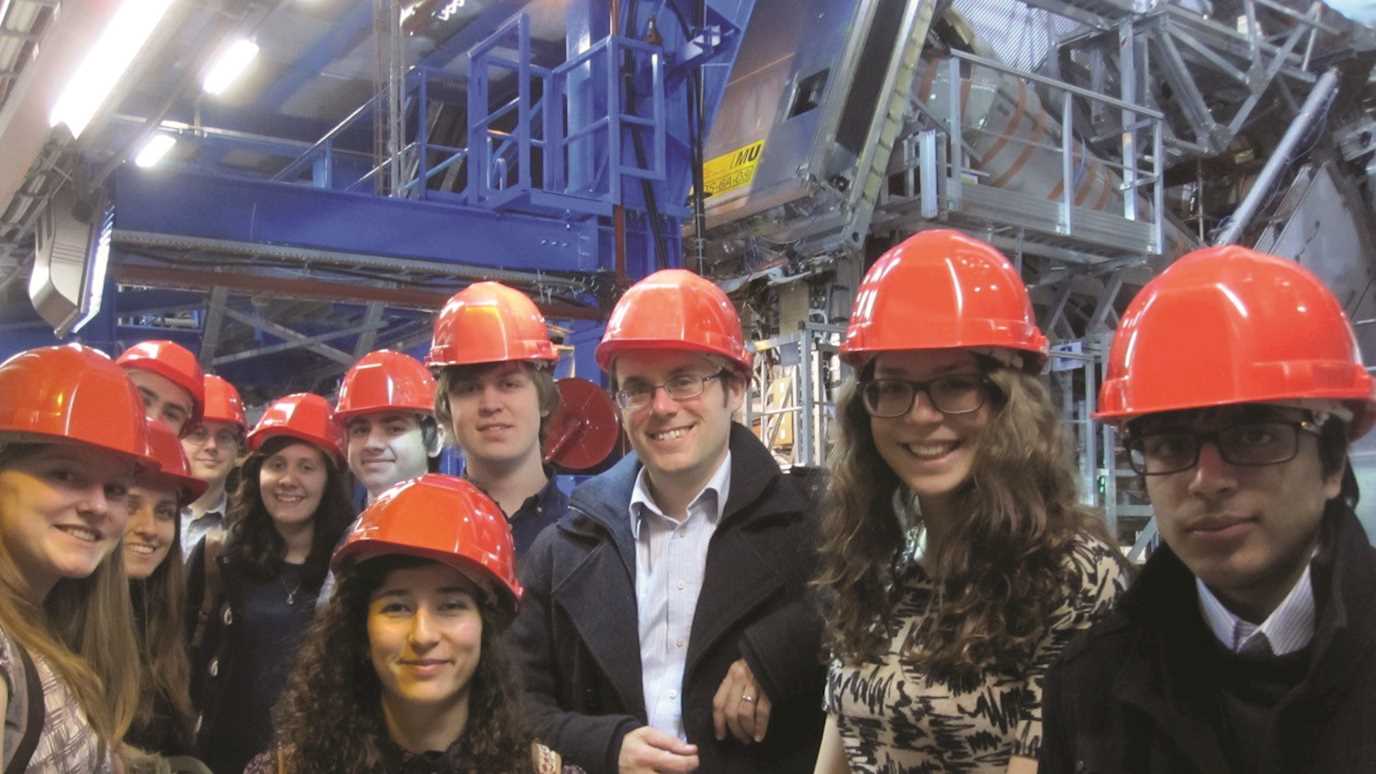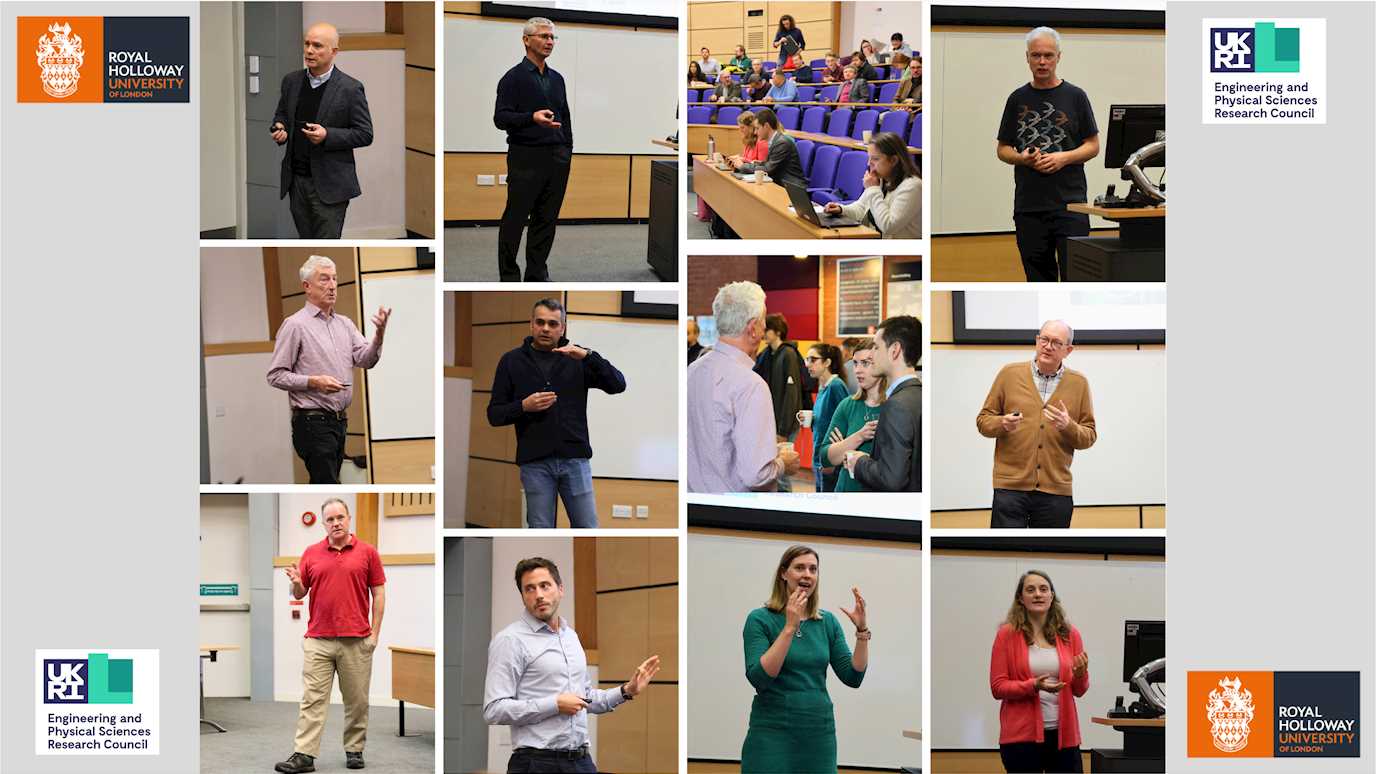Researchers at Royal Holloway have smashed the low temperature record for two dimensional electrons, cooling them below one thousandth of a degree above absolute zero.
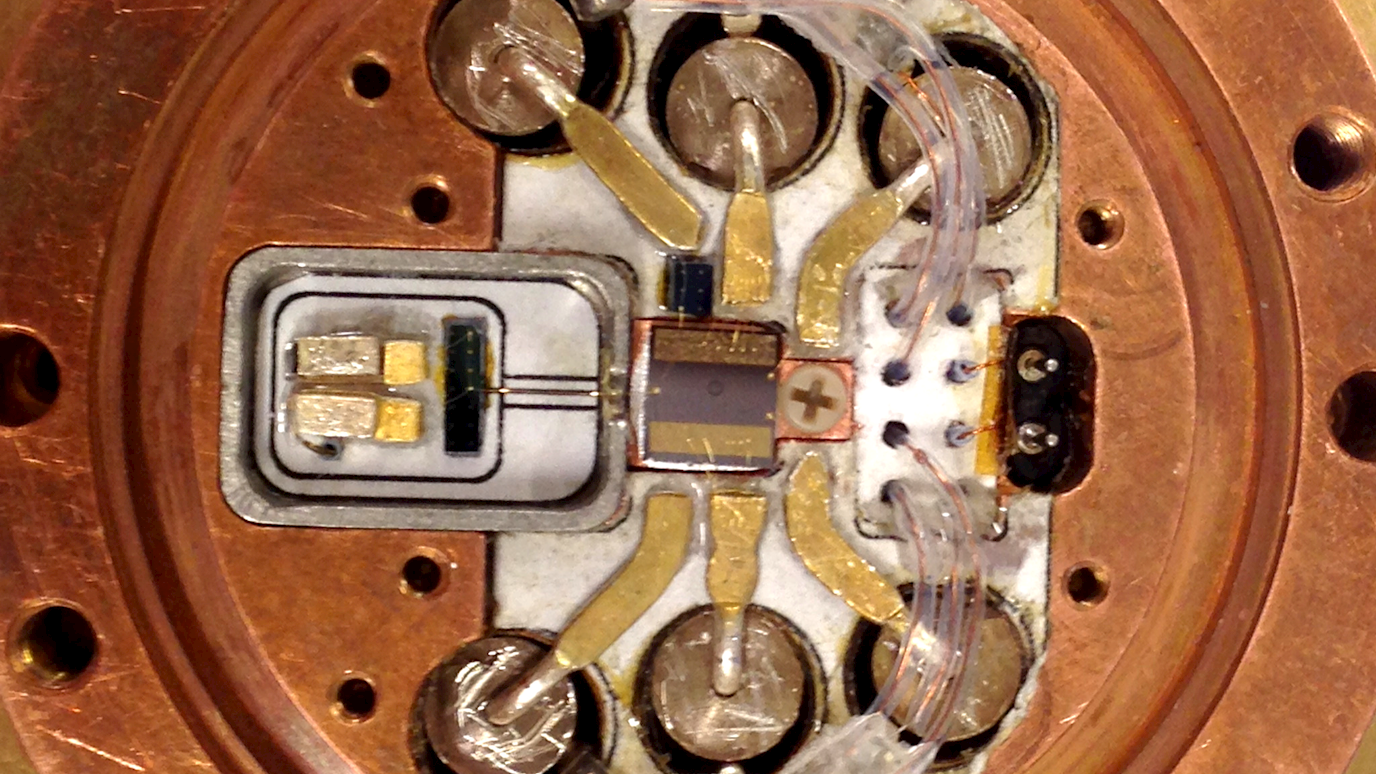
Inside of the sample cell used in the experiment.
Researchers at Royal Holloway have smashed the low temperature record for two dimensional electrons, cooling them below one thousandth of a degree above absolute zero, work reported in Nature Communications can be found here.
Breaking the millikelvin barrier in nanoelectronics is important scientifically and for new quantum technology [1] and a strategic priority of the European Microkelvin Platform (EMP). Current demonstrations have been limited to small specific devices. Royal Holloway, with its collaborators, have achieved this is in a large area, two dimensional, electron gas (2DEG).
EMP is a European Advanced Infrastructure of which the London Low Temperature Laboratory at Royal Holloway is a member and access-giving site.
Unexpected quantum phenomena in 2DEGs at low temperatures include the Quantum Hall Effect (QHE) (Nobel Prize 1985) and Fractional Quantum Hall Effect (FQHE) (Nobel Prize Effect 1998). The theoretical understanding of the precision of QHE heralded a wider revolution in condensed matter physics: topological quantum matter (Nobel Prize 2016).
The breakthrough reported by the Royal Holloway researchers paves the way for a better understanding of FQHE states, of interest in topologically protected quantum computing (a strategy supported by Microsoft [2]). Beyond that the 2DEG provides a flexible platform to pattern a variety of potential new nanoelectronic devices, such as those where information can be stored and transmitted using electron spin, rather than charge.
As the accessibility of ultralow temperatures increases, via new cryogen-free platforms under development, demonstrating the ability to cool systems to below 1 mK is essential to open up both a new scientific frontier and domain of operation for nanoelectronics.
Not so long ago experiments on solid state systems down to 10 mK, achievable by dilution refrigerators, was regard as somewhat niche. This has shifted since the revolution in cryogen-free dilution refrigerators and their key role in quantum revolution 2.0 through quantum computers based on superconducting qubits.
A new frontier beckons.
[1] https://doi.org/10.1051/epn/2021406
[2] https://www.quantamagazine.org/major-quantum-computing-strategy-suffers-serious-setbacks-20210929/#
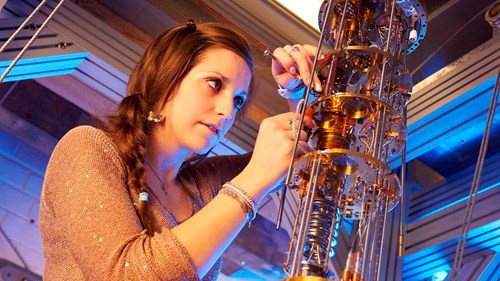
Photo of Harriet Van der Vliet, co-author on the publication, working on the ultra-low temperature cryostat (nuclear demagnetization refrigerator) used in the experiment.










